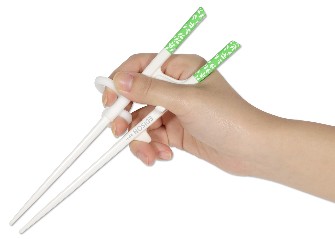Short Description
Juice extractors are of three types : manual presses, presses connected to kitchen machines, and stand alone presses. The effectiveness of the extractor should be weighed against the steps involved in setting up, cleaning and disassembling the extractor. Electrical juice extractors eliminate the effort of using a manual juice extractor and may help people with weak or painful hands.
More Details
Points to consider when buying a juice extractor:
*capacity
*ease of assembly
*ease of taking apart for cleaning
*ease of cleaning or dishwasher compatibility
*ease of handling, grip comfort
*visibility and ease of use of controls
*ease if feeding fruit / vegetables into chute - juicers with large chutes require less chopping of fruit and vegetables
*height of spout - can it be used in conjunction with a jug suited to the user
*juice jugs that slot into the juicer itself are less messy
*ease of operating citrus juicer
*quality of instructions
*noise and vibration levels
*liquid level indicator; visibility of juice in bowl
*possibility of using with one hand
*length and conditions of warranty.
Other available features:
*Safety lid lock that won't allow operation of the juice extractor unless the lid is locked into place
*Two speed motors
*pulse action
*power on light
*cord storage facility
*juice extractors attached to food processors
*device to help remove a two or three point plug from the power point.
Choice magazine (October 2005) assessed 10 juice extractors for ease of use and value. The Panasonic Juice Extractor MJ - W66P was the model recommended for people with disabilities as it can be used one-handed and has easy to use, bright switches that are suitable for people with poor hand coordination and vision impairment. It also has a decent sized chute to reduce the amount of fruit and vegetable chopping, and is easy to assemble / disassemble.
Other models that were considered easy to assemble and disassemble were the Sunbeam Caf Series and the Sunbeam Fresh Start.
For further information, check Choice magazine, the yellow pages of the telephone book or talk to a retailer.
We are pleased to receive feedback on the information that we provide..
If there is something we should add or need to change, please let us
know. These are general suggestions - if you experience considerable difficulty in performing activities of daily living, consult an
occupational therapist at a community health centre or aged care
assessment team, or make an appointment with the ILC.
Standards
Some assistive technology needs to meet Australian or other standards. Standards may relate to materials, manufacturing and installation. Products that meet Australian or international standards will have written certification. To find out if a product meets Australian Standards ask the supplier to show you the certificate. For a fact sheet about standards contact us or visit www.ilcaustralia.org/home/standards.asp


 subscribers
subscribers 




